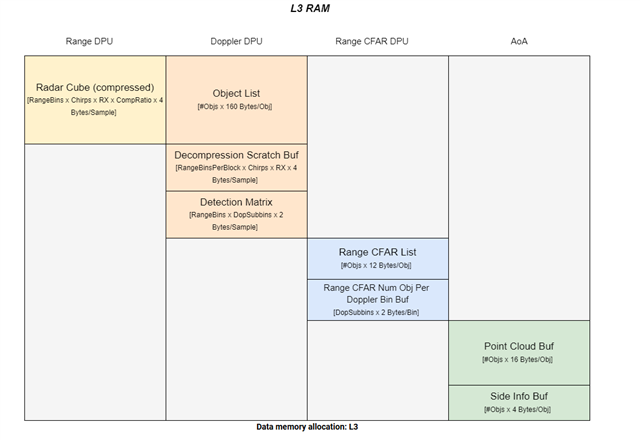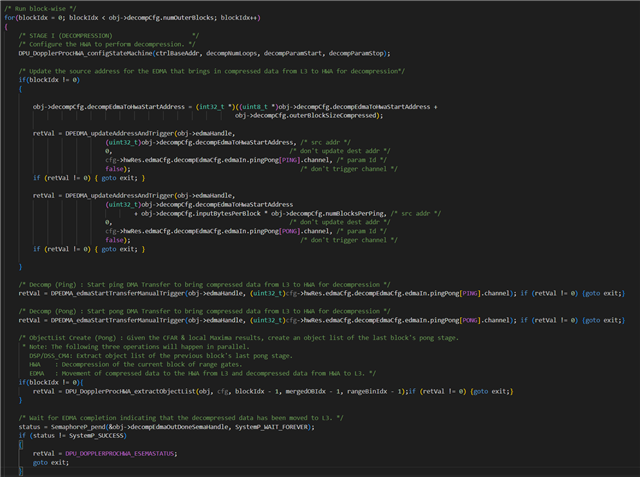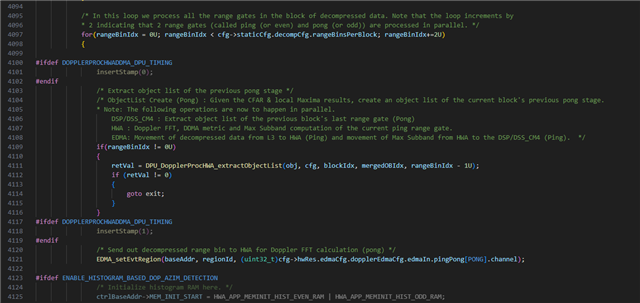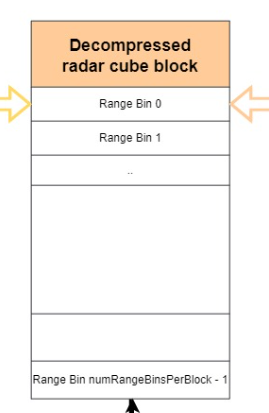Other Parts Discussed in Thread: AWR2944
Tool/software:
I am modifying AWR2944EVM's DDM demo, so that besides its current functionality it computes STFT spectrograms and sends them to the end user via TLV messages. I managed to successfully implement the data path via the shared HSRAM however I have some issues concerning handling the actual radar cube data.
I need to access just the raw radar cube data at a single range bin per CPI and I have several questions about interacting with the radar cube:
1.) I assume that the radar data cube compressed by default within the demo. Are these the line specifying the compression factor and compression type?
if(staticCfg->compressionCfg.compressionMethod==HWA_COMPRESS_METHOD_BFP){
inputBytesPerBlock = 4 * staticCfg->compressionCfg.rangeBinsPerBlock;
}
else{
inputBytesPerBlock = 4 * staticCfg->compressionCfg.numRxAntennaPerBlock * staticCfg->compressionCfg.rangeBinsPerBlock;
}
2.) My function fixedSTFT_execute is called within DPC_ObjectDetection_execute directly after DPU_RangeProcHWA_process, like so:
retVal = DPU_RangeProcHWA_process(subFrmObj->dpuRangeObj, &subFrmObj->dpuCfg.rangeCfg, &outRangeProc);
...
checkFFTClipStatus(objDetObj, &result->FFTClipCount[0]);
radarCubePtr = subFrmObj->dpuCfg.dopplerCfg.hwRes.radarCube.data;
fixedSTFT_execute(objDetObj->stftHandle, radarCubePtr, objDetObj->stftOutputBuf, objDetObj);
This is the original code with which I tried to access the radar cube but it seems to be compressed at this stage. How can I access the non-compressed radar cube? If this is not possible what advice would you give to get uncompressed radarcube data at a given range bin? Can I decompress just part of the data only on the CPU without tapping into the HWA code?
3.) Is it possible to turn the compression engine off?
4.) By default is the full "doppler radar cube" accessible in a non-compressed format available in the L3 after it gets decompressed by doppler processing?
Best regards,
Mark








